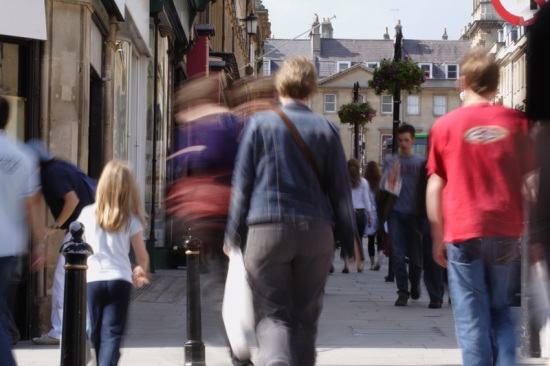As everyone in the UK knows, the high street is facing one of the worst times for growth in many years. With commercial property chains folding left, right and centre, and the majority of stores struggling to attract customers, it was hoped that this summer would prove to be a turning point for their poor fortunes.

Unfortunately, a combination of the wet weather and Olympics proved enough to keep custom to a minimum, with only 0.1 per cent growth reported in July – usually a successful month for retailers.
The figures were released 24 hours before the Bank of England officially announced that the UK economy will not grow at all for the remainder of the year, causing concern for all business owners who were hoping to see profits increase after almost four years of difficult trading conditions.
As a result of the Bank of England’s pronouncement, economists have now begun to speculate what exactly the banking giants plan to do to keep the economy flowing, when all facts point towards it grinding to a standstill. Quantitative easing – effectively, simply printing more money – has been the solution in the past, with the Bank of England already having pumped around £375 billion into the lacklustre UK economy since the start of the recession. In fact, this may prove to be the plan for stimulated growth again, with rumours of a further £50 billion being thrown into the mix.
Although the high street did grow by 2 per cent in the month, this was largely due to new commercial property store openings, which is still lower than the rate of inflation.
Data from the British Retail Consortium (BRC) showed that even big ticket items, such as electrics and luxury goods, struggled this month – putting an end to several months of gradually growing sales.
Fortunately, the poor weather did have something of a positive effect on clothing sales – with Autumn stock arriving in retail stores, the constant downpours and cold snap experienced by much of Britain last month had people queuing up to buy their Winter woolies a lot earlier than usual. Yet not even this truly helped clothing chains, which are currently facing one of the worst slumps in recent history, to the extent that retailers are forced to put on sales and promotions in what is traditionally considered a boom time for shopping.
Even food and drink failed to live up to expectations, despite a slight rise in the final week of the month to coincide with warmer weather and the official start of the Olympic Games.
Head of retail at accountants KPMG, Helen Dickinson, believes that the lack of trade in London could actually be down to the Olympics, with consumers wary about venturing on to the public transport network and unwilling to face large crowds in tourist attractions.
She said; “Sadly July was a lacklustre month. Central London retailers are already being hit hard by shoppers actively avoiding the capital.”